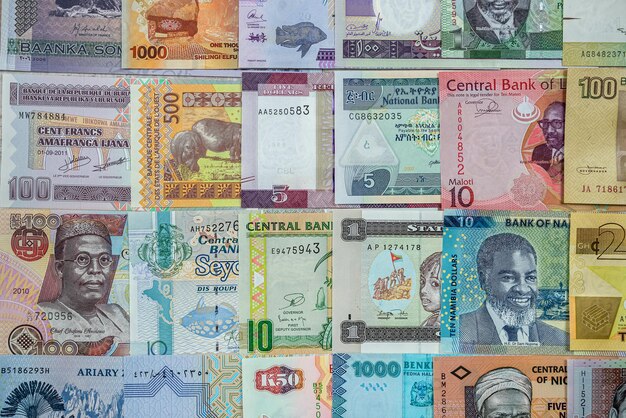When traveling to Mauritius, understanding the local currency, payment options, and money management tips is key to a stress-free holiday. Unlike some other destinations, Mauritius has a well-developed banking system, but cash is still important for smaller purchases and transactions in local markets. Here’s everything you need to know about handling money in Mauritius.
1. The Mauritian Rupee (MUR) – Mauritius’ Currency
Table of Contents
ToggleMauritius’ official currency is the Mauritian Rupee (MUR). Prices are displayed in rupees across the island, whether in restaurants, shops, or for transport services.
💰 Key facts about the Mauritian Rupee:
Currency code: MUR
Symbols: Rs or MUR
Common banknotes: Rs 25, Rs 50, Rs 100, Rs 200, Rs 500, Rs 1,000, Rs 2,000
Common coins: Rs 1, Rs 5, Rs 10, Rs 20
🚀 Pro Tip: Keep small denominations on hand for taxis, street food, and local markets, as many vendors cannot provide change for larger notes.
2. Currency Exchange & Where to Get Mauritian Rupees
Exchanging money in Mauritius is simple, with many reliable options available.
📍 Where to Exchange Money:
✅ Banks & Official Exchange Bureaus – Best exchange rates and security.
✅ Airports – Convenient but usually slightly less favorable rates.
✅ Hotels – Available but often offer lower rates than banks.
🚫 Avoid exchanging money with unlicensed street dealers to reduce the risk of scams.
🚀 Pro Tip: Keep your exchange receipts if you want to convert leftover rupees back to foreign currency before departure.
3. Using ATMs & Credit Cards in Mauritius
Mauritius has a good network of ATMs and card payment facilities, especially in towns and tourist areas.
🏧 ATM Availability & Tips:
✅ Major banks: Mauritius Commercial Bank (MCB), State Bank of Mauritius (SBM), Barclays/ABSA, and HSBC.
✅ ATMs widely accept Visa and Mastercard.
✅ Withdrawal limits vary but are generally around Rs 10,000–15,000 per transaction (~$220–$330 USD).
✅ ATMs are available at airports, shopping malls, and towns.
💳 Credit Card Usage:
Widely accepted at hotels, supermarkets, restaurants, and larger shops.
Smaller shops, taxis, and markets are mostly cash-only.
🚀 Pro Tip: Always carry some cash as backup, especially when exploring rural villages or beaches.
4. How Much Cash Should You Carry?
While cards are accepted in many places, cash is essential for smaller purchases.
💰 Estimated Daily Expenses:
Budget Travelers: $30–$50 USD (local buses, street food, guesthouses)
Mid-Range Travelers: $70–$120 USD (car hire, nicer restaurants, boutique hotels)
Luxury Travelers: $200+ USD (fine dining, resorts, private tours)
🚀 Pro Tip: Split your cash into different wallets or pouches for safety.
5. Tipping Culture in Mauritius
Tipping is not mandatory but is welcomed as a gesture of appreciation.
💵 General Tipping Guidelines:
🏨 Hotel Staff: Rs 50–100 for porters or housekeeping
🍽️ Restaurants: 5–10% of the bill if service charge isn’t included
🚕 Taxi Drivers: Round up the fare or add Rs 50–100 for longer rides
🏞️ Tour Guides/Drivers: Rs 200–500 per day (depending on service quality)
🚀 Pro Tip: Always tip in Mauritian Rupees—foreign currency is not commonly accepted.
6. Bargaining & Shopping in Mauritius
Bargaining is common in markets but not in supermarkets or shopping malls.
🛍️ Where to Bargain:
✅ Local markets (Port Louis Central Market, Quatre Bornes, Flacq Market)
✅ Souvenir stalls and craft shops
✅ Taxi fares (unless using a metered service)
🚀 Pro Tip: Be polite when bargaining—Mauritians are friendly, and respectful negotiation is appreciated.
7. Can You Use Foreign Currency in Mauritius?
Euros (€) and US Dollars ($) are accepted at some hotels, resorts, and tour companies.
However, most day-to-day transactions require Mauritian Rupees.
Exchange rates offered for direct foreign currency payments are usually less favorable.
🚀 Pro Tip: Carry rupees for local purchases—reserve foreign currency for high-end hotels or large tour operators.
8. Safety Tips for Handling Money in Mauritius
Mauritius is generally safe, but it’s best to stay cautious with your money.
💡 Smart Money Practices:
✅ Use ATMs inside banks or malls.
✅ Don’t carry large amounts of cash unnecessarily.
✅ Store your wallet securely when visiting busy markets.
✅ Double-check notes and change in smaller shops.
🚀 Pro Tip: For peace of mind, keep some emergency cash separate from your main wallet or card.
Final Thoughts: Be Prepared & Travel Smart!
Handling money in Mauritius is straightforward, but a little preparation goes a long way.
✅ Use ATMs and cards in urban/tourist areas
✅ Keep small bills handy for taxis, snacks, and markets
✅ Bargain respectfully at local stalls
✅ Carry some backup cash when exploring rural spots
With these tips, you’ll enjoy Mauritius without money worries!




